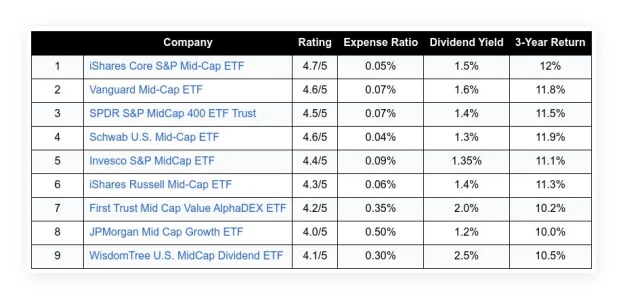A divorce can be financially and emotionally challenging, especially if it unfolds after many years together or in retirement. But, sometimes a divorce is necessary for a person’s health and happiness. If you’re already retired or on the path to retirement, divorces can be even trickier to navigate. They can present deeper complexities, and often larger stakes for both parties.
How do you handle a divorce in retirement or when nearing retirement?
Table of Contents
ToggleUnderstand That There Is No Universal Model for Divorce
If you’re looking for a blueprint that you can follow perfectly, or even a template on which you can build your path to a divorce in retirement, you’re out of luck. Unfortunately, there is no universal model for divorce because every situation is so unique.
Divorce laws work differently in different states. States differ in terms of how they consider marital assets, how divorces and dissolutions are filed, and more. On top of that, every relationship is distinct. Your priorities in this divorce are totally independent and unique to you.
Because of that, you’ll need to make most decisions for yourself. But, we can provide you with important areas to keep in mind.
Hire a Good Lawyer (as Early as Possible)
As early in the process as possible, hire the best lawyer you can afford. Your lawyer is going to be your advisor and confidant throughout this process, guiding you in every decision you make. They’ll also be fighting for you to get the best possible final position. In addition to that, they can provide you with guidance and support, so you feel better about the possibilities that await you.
According to attorney Rowdy G. Williams, “Divorce is sometimes a messy and complicated process for retirees, especially if you’ve spent many years building savings and developing a retirement strategy together. But there’s always a way forward, and a good lawyer can make things a lot simpler.”
Avoid making any big decisions until you have a good lawyer in your corner. Once you’ve hired someone, be sure to ask lots of questions and get involved with the process so you understand everything that’s happening.
Focus on Your Biggest Challenges
With your lawyer, you can sit down and focus on some of your biggest challenges. Some of the most challenging aspects of divorcing in retirement include:
Division of Assets
Even if you’ve retired relatively early or with minimal assets, finding an equitable way to divide assets can be challenging – and for multiple reasons. Some of your assets may be marital, while some of them are independent. You or your partner might have specific attachments to certain assets, and you may be forced to fight over them. And of course, ensuring equitable distribution can be especially challenging when individuals have assets of disproportionate value.
Emotional Turmoil
Divorces are typically emotional and stressful. This is someone you’ve known and loved for many years, possibly decades, and on top of dealing with all the financial logistics of the situation, you’ll be forced to confront the strain your relationship has endured – and a future without your spouse. If you’re not proactive and deliberate about how you manage your emotions in this situation, they can easily take you over.
Civility and Negotiations
The process is going to be much smoother and will likely work out better in your favor if you remain civil and engage in negotiations in good faith. Spouses are sometimes tempted to engage spitefully, out of retaliation, or in pursuit of emerging as the dominant party, but these motivations often result in further complexity and more stress for everyone involved. There’s nothing wrong with fighting for what you want, but you need to remain respectful and polite at all times.
Children
If you’re nearing retirement or are already retired, you probably don’t have young children, which means you can skip potential custody battles. However, you may still need to contend with your adult children. You’ll need to explain to them what’s happening and avoid forcing them to take sides.
Living Situations
Assuming you shared a house in your marriage, where will you and your spouse live during and after the divorce? Your living situation is arguably the most important foundation in your life, so if it’s disrupted, it’s likely going to be very stressful until the situation is resolved. It’s possible, though not advisable for spouses to remain living together during a divorce. Can one of you move to a relative’s house or move into an apartment temporarily?
Ongoing Expenses
Life doesn’t stop just because you’re getting a divorce. Throughout the divorce process, which can last many months, you’ll still be responsible for ongoing expenses, including housing, medical expenses, groceries, and more. How are you going to continue keeping up with these expenses with your assets in limbo?
The Timeline
Finally, you’ll need to acknowledge how long divorces can take. In particularly complex situations, divorces can take more than a year, and sometimes two. If you want to reduce stress and keep the process running smoothly, you’ll need to be prepared for this long-term path.
Get Organized
Your lawyer will help you prepare for divorce proceedings, but there are some things you can gather and organize on your end. Be prepared to handle documents and items like the following:
- Bank statements
- Tax returns
- Retirement and investment accounts
- Mortgage documents
- Insurance policies
- Trusts
- Asset titles
Prioritize Immediately Available Financial Resources
Early in divorce proceedings, create a plan to prioritize immediately available financial resources. You and your partner will both require cash and other immediately accessible assets to make ends meet while the divorce is ongoing. If all your assets are tied up in property, retirement accounts, or other similarly illiquid sources, you’ll have a hard time getting the money required for your ongoing needs. Depending on your lawyer’s advice, it may be a good idea to pull out some money and put it into a private, individual bank account, where you can access it as necessary. Plan to have at least a few months of expenses set aside, if possible.
Create a Temporary Budget
In line with this, it’s a good idea to create a temporary budget. Though you may be tempted to go on a spending spree, it’s usually a much better idea to live as frugally as possible while your financial situation is still being resolved in court. Depending on your divorce proceedings, some of your assets may be temporarily frozen, preventing you from drawing from them or modifying them. On top of that, some of your expenses may change, especially if you and your spouse are now living in separate areas.
Draw up a plan for your spending and try your best to stick to it. Just keep in mind that you may have to make alterations as you learn more and as the divorce progresses.
Consider Your Options
With your lawyer, talk about and carefully consider the options available to you. Depending on where you live, you may have the option of divorcing your spouse or filing for dissolution. Both options carry very different processes and consequences.
Some couples benefit from mediation. Mediation is a neutral process in which spouses freely discuss their wants and needs and attempt to come to an agreement without any advanced legal proceedings. Your mediator won’t represent either party, but will facilitate a discussion in which both parties can represent themselves. Representative lawyers may or may not be present for the involved parties.
Because mediation saves time, saves money, and ultimately focuses on giving each party what they want, it’s an ideal solution for couples who feel they can come to a mutually agreeable solution.
Also, you need to think about what your living options will be after the divorce is over. You may not have a full idea of what you’ll receive as a result of the divorce, including assets as well as spousal support, but you should have a general idea of whether your final distribution of assets will leave you in a position where you can retire successfully on your own (or continue your existing retirement).
If your financial situation is tight, or if you know you won’t be able to make ends meet with the assets you’re going to receive, consider whether you’re in a position to return to work or take up a side gig, at least temporarily.
Get Support
Don’t underestimate just how stressful and demanding divorces can be. If you’re in retirement or nearing retirement, the impact is going to be further heightened. This isn’t something you should do alone, so make plans to reach out and get support from the people you love. Friends, family members, and neighbors will likely be more than happy to talk to you, distract you, and make you feel loved and supported.
Additionally, it’s a good idea to seek therapy. Therapy is relatively inexpensive when covered by health insurance, and it can help you methodically process all your thoughts and feelings pertaining to the divorce. This is a safe, anonymous environment in which you can fully express yourself, explore your relationship, and come to terms with any of the mental and emotional challenges you’ve faced along the way. After a few sessions, you may find yourself able to see your entire relationship and divorce in a new light – and you’ll gain the tools and exercises necessary to help build a happy life for yourself in the near future.
Focus on Yourself
During and immediately after your divorce, you should have plenty of time to focus on yourself – especially if you’re not currently working full-time. This is a great opportunity to explore yourself, and in several important ways:
Solidifying your identity.
If you’ve been with your spouse for years to decades, you’ve probably spent a lot of time entangling your personalities, goals, behaviors, and traits. There’s a lot you’ve learned from your spouse, and that’s a good thing, but this is also an excellent opportunity to solidify your own, independent identity. Who are you, without your spouse? What are your desires, goals, and feelings? Who do you want to be in the future?
Processing your thoughts and feelings.
It’s important to dedicate time to processing your thoughts and feelings, as you’ll probably have a lot of them. Many people make the mistake of burying or ignoring their negative feelings, but this often has the result of making things worse in the long term. Journal, introspect, and talk to others to come to terms with what you’re feeling, and be prepared to accept those feelings rather than run from them.
Destressing and relaxing.
Divorce is one of the most stressful things that can happen to you. Accordingly, you’ll also need to make time to destress and relax. There’s nothing wrong with distracting yourself, as long as you’ve also done the emotional work necessary to preserve your mental health, and you should actively pursue activities that help you clear and refocus your mind.
Preparing for the future.
As long as you stay healthy, you should have many years of retirement to enjoy from here. Accordingly, you’ll need to spend time thinking about and practically preparing for that future.
Here are some great ideas to get you started:
Exercise
Physical exercise keeps you in good health, lowers your stress levels, and gives you an opportunity to engage with other people. Try walking or cycling if you don’t already have an exercise regimen.
Start a New Hobby
This is also a great time to start a new hobby. New hobbies bring novelty to your life, they allow you to explore your individual identity, and they give you an easy excuse to meet new people and participate in new group dynamics.
Get Out
Even if you don’t take on a new hobby, you should get out of the house. There’s nothing wrong with relaxing indoors, but you also need to avoid isolating yourself. Aim to socialize with at least a few new people every week and go out of your way to attend local events that interest you.
Do Things You Love
Finally, deliberately focus on doing things that you genuinely love – whatever those happen to be. This will help you destress, find love for yourself, and solidify an independent identity.
Divorces aren’t fun, but in some relationships, they become necessary – even if you’ve spent decades together, and even if you’re nearing retirement. With the help of a good lawyer, calm and respectful civility, and a firm understanding of your goals and desires, you should be in a much better position to get the outcome you need and stay sane throughout the process.
















